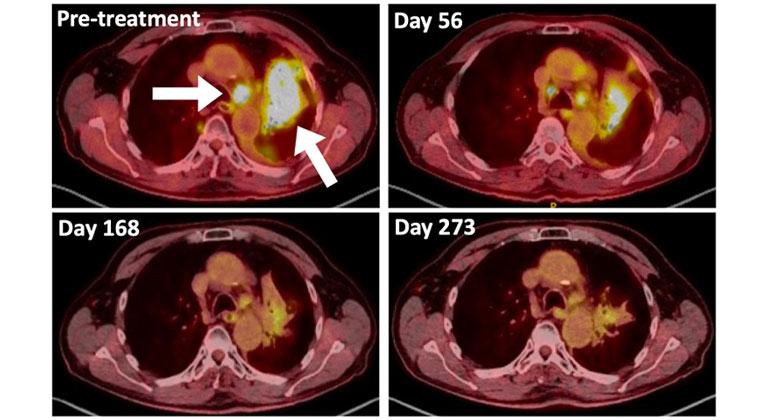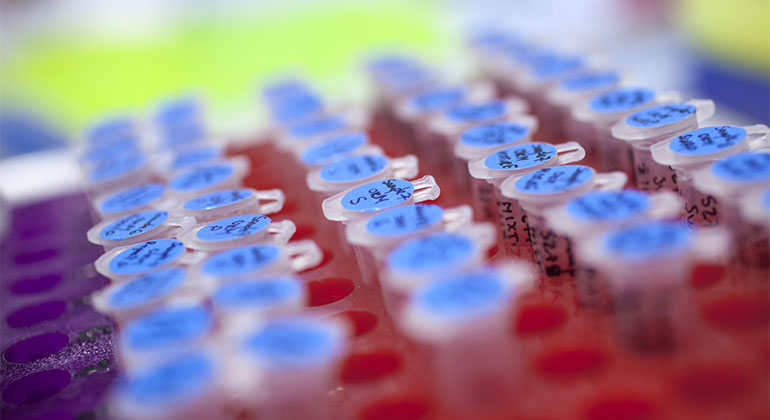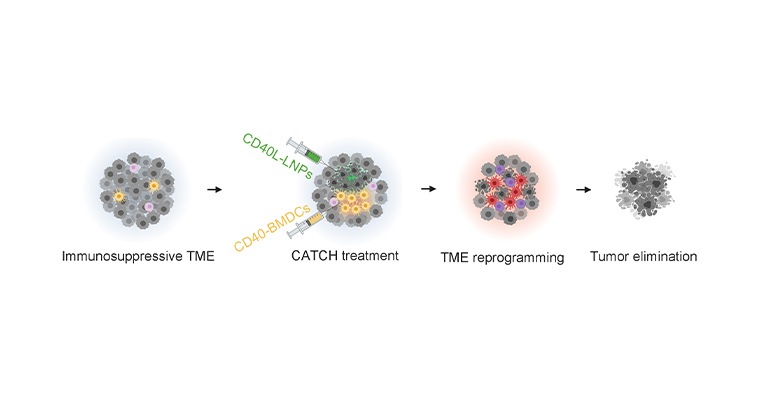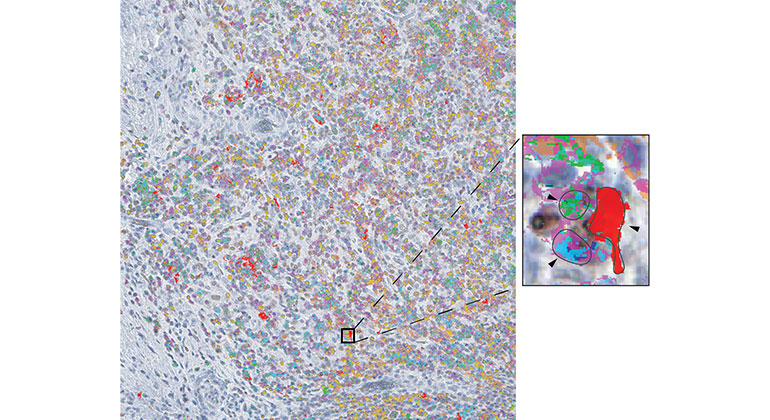Mount Sinai Researchers Discover Genetic Origins of Myelodysplastic Syndrome Using Stem Cells
Findings Shed Light on the Development of Blood Cancers
Induced pluripotent stem cells (iPSCs)—adult cells reprogrammed back to an embryonic stem cell-like state—may better model the genetic contributions patient's particular disease. In a process called cellular reprogramming, researchers at Icahn School of Medicine at Mount Sinai have taken mature blood cells from patients with myelodysplastic syndrome (MDS) and reprogramed them back into iPSCs to study the genetic origins of this rare blood cancer. The results appear in an upcoming issue of Nature Biotechnology.
In MDS, genetic mutations in the bone marrow stem cell cause the number and quality of blood-forming cells to decline irreversibly, further impairing blood production. Patients with MDS can develop severe anemia and in some cases leukemia also known as AML. But which genetic mutations are the critical ones causing this disease?
In this study, researchers took cells from patients with blood cancer MDS and turned them into stem cells to study the deletions of human chromosome 7 often associated with this disease.
“With this approach, we were able to pinpoint a region on chromosome 7 that is critical and were able to identify candidate genes residing there that may cause this disease,” said lead researcher Eirini Papapetrou, MD, PhD, Department of Oncological Sciences, Icahn School of Medicine at Mount Sinai.
Chromosomal deletions are difficult to study with existing tools because they contain a large number of genes, making it hard to pinpoint the critical ones causing cancer. Chromosome 7 deletion is a characteristic cellular abnormality in MDS and is well-recognized for decades as a marker of unfavorable prognosis. However, the role of this deletion in the development of the disease remained unclear going into this study.
Understanding the role of specific chromosomal deletions in cancers requires determining if a deletion has observable consequences as well as identifying which specific genetic elements are critically lost. Researchers used cellular reprogramming and genome engineering to dissect the loss of chromosome 7. The methods used in this study for engineering deletions can enable studies of the consequences of alterations in genes in human cells.
“Genetic engineering of human stem cells has not been used for disease-associated genomic deletions,” said Dr. Papapetrou. “This work sheds new light on how blood cancer develops and also provides a new approach that can be used to study chromosomal deletions associated with a variety of human cancers, neurological and developmental diseases.”
Reprogramming MDS cells could provide a powerful tool to dissect the architecture and evolution of this disease and to link the genetic make-up of MDS cells to characteristics and traits of these cells. Further dissecting the MDS stem cells at the molecular level could provide insights into the origins and development of MDS and other blood cancers. Moreover, this work could provide a platform to test and discover new treatments for these diseases.
This study was supported by grants from the National Institutes of Health, the American Society of Hematology, the Sidney Kimmel Foundation for Cancer Research, the Aplastic Anemia & MDS International Foundation, the Ellison Medical Foundation, the Damon Runyon Cancer Research Foundation, the University of Washington Royalty Research Fund, and a John H. Tietze Stem Cell Scientist Award.
About the Tisch Cancer Institute
The Tisch Cancer Institute (TCI) is a world-class translational cancer institute established in December 2007. TCI has recruited more than 30 acclaimed physicians and researchers specializing in basic research, clinical research, and population science; built outstanding programs in solid tumor oncology; enhanced existing robust programs in hematological malignancies; and advanced the study of cancer immunology and vaccine therapy. The completion of the Leon and Norma Hess Center for Science and Medicine in 2012 is enabling the recruitment of up to 20 additional cancer researchers on two full research floors, with 48,000 square feet of space dedicated to cancer research.
To learn more about clinical trials at Mount Sinai, visit http://icahn.mssm.edu/research/clinical-trials.
About the Mount Sinai Health System
Mount Sinai Health System is one of the largest academic medical systems in the New York metro area, with more than 43,000 employees working across eight hospitals, over 400 outpatient practices, nearly 300 labs, a school of nursing, and a leading school of medicine and graduate education. Mount Sinai advances health for all people, everywhere, by taking on the most complex health care challenges of our time — discovering and applying new scientific learning and knowledge; developing safer, more effective treatments; educating the next generation of medical leaders and innovators; and supporting local communities by delivering high-quality care to all who need it.
Through the integration of its hospitals, labs, and schools, Mount Sinai offers comprehensive health care solutions from birth through geriatrics, leveraging innovative approaches such as artificial intelligence and informatics while keeping patients’ medical and emotional needs at the center of all treatment. The Health System includes approximately 7,300 primary and specialty care physicians; 13 joint-venture outpatient surgery centers throughout the five boroughs of New York City, Westchester, Long Island, and Florida; and more than 30 affiliated community health centers. We are consistently ranked by U.S. News & World Report's Best Hospitals, receiving high "Honor Roll" status, and are highly ranked: No. 1 in Geriatrics and top 20 in Cardiology/Heart Surgery, Diabetes/Endocrinology, Gastroenterology/GI Surgery, Neurology/Neurosurgery, Orthopedics, Pulmonology/Lung Surgery, Rehabilitation, and Urology. New York Eye and Ear Infirmary of Mount Sinai is ranked No. 12 in Ophthalmology. U.S. News & World Report’s “Best Children’s Hospitals” ranks Mount Sinai Kravis Children's Hospital among the country’s best in several pediatric specialties.
For more information, visit https://www.mountsinai.org or find Mount Sinai on Facebook, Twitter and YouTube.

A Type of Allergy Medicine Might Help Treat Lung Cancer, Research Suggests
Dec 06, 2023 View All Press Releases
Diabetes May Accelerate Blood Cancer Growth, Yet Survival Outcomes Differ by Race
Sep 29, 2023 View All Press Releases
Mount Sinai Awarded $3.4 Million to Study Prostate Cancer in People With HIV
Sep 12, 2023 View All Press Releases
New RNA-based Therapy Combats Melanoma in Mouse Models
Jul 27, 2023 View All Press Releases
Study Reveals a Trio of Immune Cells Vital in Response to Liver Cancer Immunotherapy
Jun 15, 2023 View All Press Releases


